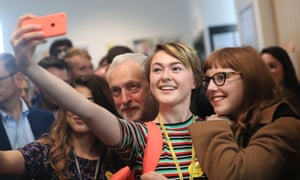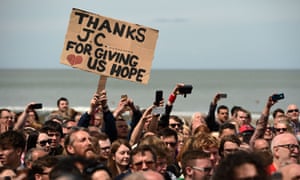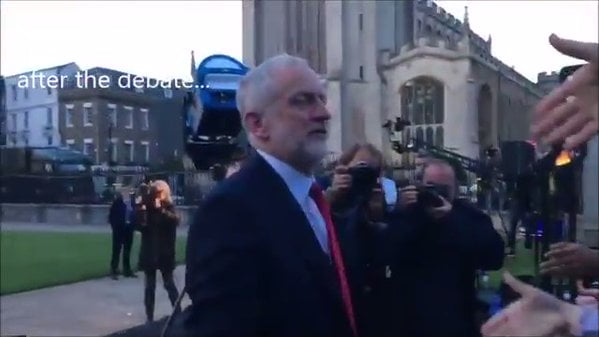
Socialism is stubborn. After decades of dormancy verging on death, it is rising again in the west. In the UK, Jeremy Corbyn just led the Labour Party to its largest increase in vote share since 1945 on the strength of its most radical manifesto in decades. In France, the leftist Jean-Luc Melenchon recently came within two percentage points of breaking into the second round of the presidential election. And in the United States, the country’s most famous socialist – Bernie Sanders – is now its most popular politician.
The reasons for socialism’s revival are obvious enough. Workers in the west have seen their living standards collapse over the past few decades. Young people in particular are being proletarianized in droves. They struggle to find decent work, or an affordable place to live, or a minimum degree of material security. Meanwhile, elites gobble up a growing share of society’s wealth.
But grievances alone don’t produce political movements. A pile of dry wood isn’t enough to start a fire. It needs a spark – or several.
For the resurgent left, an essential spark is social media. In fact, it’s one of the most crucial and least understood catalysts of contemporary socialism. Since the networked uprisings of 2011 – the year of the Arab Spring, Occupy Wall Street, and the Spanish indignados – we’ve seen how social media can rapidly bring masses of people into the streets. But social media isn’t just a tool for mobilizing people. It’s also a tool for politicizing them.
Social media has supplied socialists with an invaluable asset: the building blocks of an alternative public sphere. The mainstream media tends to be hostile to the left: proximity to power often leads journalists to internalize the perspectives of society’s most powerful people. The result is a public sphere that sets narrow parameters for permissible political discourse, and ignores or vilifies those who step outside of them. That’s why social media is indispensable: it provides a space for incubating new kinds of political thinking, and new forms of political identity, that would be inadmissible in more established channels.
Every movement needs a petri dish for developing the specific contagion with which it hopes to infect the body politic. The Reformation had the printing press. The French Revolution had the coffeehouse. Today’s new new left has Twitter and Facebook.

Last month’s election in the UK offered a stark illustration of this dynamic. Much of the British media attacked Corbyn relentlessly in the weeks leading up to the election. An analysis from Loughborough University found that Labour received the vast majority of the negative coverage, while a study from the London School of Economics concluded that Corbyn had been the victim of “a process of vilification”.
In another era, such an assault might’ve proven fatal. Fortunately, social media gave Corbyn’s supporters a powerful weapon. Banished from the public sphere, they built one of their own. They didn’t merely use social media – judging by the number of tweets and Facebook engagements, they dominated it. Pro-Labour memes, slogans, videos, and articles saturated online networks. Some were funny, like a viral video of Corbyn extemporaneously eating a pringle. Others were serious, drawing on independent left-wing outlets like Novara Media to advance an analysis of austerity’s corrosive effects on British society. Together, they made millions of people feel connected to a common project. They made Corbynism feel like a community.
Crucially, this community didn’t just exist online. Contrary to the old refrain about the internet not being “real life”, the digital ferment paid analog dividends. Young people – the heaviest users of social media – turned out in greater numbersthan usual, and they voted overwhelmingly for Labour.
What’s so bracing about the British election is how many elite assumptions it overturned. These include the belief that social media is bad for democracy. The notion that Twitter and Facebook play a toxic role in our political life has become a pillar of elite opinion in the era of Brexit and Trump. It’s a familiar argument: online platforms deepen polarization by enclosing us in echo chambers where we’re only exposed to views we already agree with. Partisanship flourishes. Compromise becomes impossible.
This analysis has some truth to it, but largely misses the mark. There’s no doubt that social media can be a cesspool. It can spread misinformation, abuse, and all manner of extremist hatred. After all, social media’s defining trait is its capacity to connect like-minded people. It follows that the communities it creates vary widely by the kind of people being connected.
But this aspect of social media is also what makes it useful for today’s socialists. Bubbles can be beneficial. They can provide an emerging movement with a degree of unity, a sense of collective identity, that helps it cohere and consolidate itself in its fragile early phases
[Source”cnbc”]









